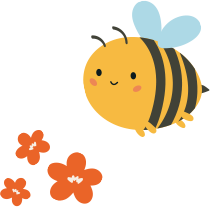UXtweak had the chance to talk to amazing Michele Ronsen, an executive researcher, educator, and the founder of Curiosity Tank – a consulting and education firm specializing in human-centered research.
In her Women in UX interview Michele shares the story of founding her own UX research consulting company, gives tips for UXers that are just starting their career and explains how she teaches human-centered design in her user research workshops.
Before you got into UX, what was your background?
I’m a classically trained designer with a degree in design. I worked my way up to strategy and design director positions before transitioning into research full time. I’ve taught design at the college undergraduate and masters level for decades.
You’ve been in the design industry for more than 30 years, do you have an all time favorite project you got to work on? Maybe a specific brand or a client you designed for?
Designing for the Salt Lake City Olympics was certainly a highlight! And so was designing the bank of the future for Bank of America. Those projects were both so huge, juicy, challenging, multi-channel and multi-faceted 😉
What inspired you to create CuriosityTank? Have you always wanted to run your own UX company?
My students and clients kept asking me to create more user research workshops and tools so they could upskill. And I loved doing it!
About five years ago I asked the General Assembly if I could create a UXR certification course for them. They said no, they didn’t want anything to compete with their UX Design certification course but they were happy to continue to support me in whatever stand alone user research workshops I wanted to offer — as long as it wasn’t a “series”.
I was really surprised by the response but went on to create more “stand alone” classes. One was called “Mixed Methods” and the workshop registrants went through nine methods in one day. I needed an over arching theme to tie the methods together so the loose research goal I settled on was “How might we educate the next generation of UXRs?” (or something like that). Seventy people completed this workshop over a two month period.

At that point I went back to GA and said there was a definitely a gap in the industry and, btw, here is a boatload of feedback to back it up and inform a solution. This is far more generative research than I would do for any new product or service at a Fortune 500. It was clear there was a huge opportunity and while I didn’t set out to do “research” on this topic (it was just a way to tie the methods all together in a meaningful way to the registrants) it did indeed result in a tremendous about of actionable data.
So I went back to GA and asked to create a UXR certification course and they said no dice, again. I hemmed and hawed for a few months and finally said screw it! I’ve developed products and services and brands for others my entire career! I’m going to give this a shot myself.
It was born out of a true unmet need and one that I was very well suited to address given my research, design, brand building and teaching expertise.
Tell us a bit more about your workshops, what does the process look like and who can participate?
The “Ask Like A Pro” series follows the same process we use in the research industry and students work on research we progress through six workshops. The sequence evolved from the GA “Mixed Methods” students feedback. They wanted to see how research theory was applied in real life, while “doing” actual, hands-on, applied research work.
There are three participation levels. Anyone can participate as an On-Demand and Observer. We call the highest level of participation “All-in.” These students go “all in” and commit to completing a full sponsored research study, while collaborating with real stakeholders, in the 8 week cohort. I mentor and provide guidance every step of the way and vet every All-In to make sure they are set up for success. It’s a completely unique and incredibly effective approach.
What is your favorite thing about being a teacher?
Of course, seeing my students thrive and land UXR jobs at Google, Adobe, Ford Motors, Microsoft, Alibaba, International Rescue Committee, and dozens of other well-respected organizations.
It’s also amazing to see someone’s light bulb go off, share something I am so passionate about, and to give back. I learn as much from them as they do from me! It’s truly a gift to be able to mentor and deliver this program.

Is there a piece of advice you’d give to UXers that are just starting their career?
Yes, I could do a whole edition just on this topic!
I wish aspiring and newer researchers understood that what we do is a combination of art, science and improv. There is no one right answer. We often work in the gray space. Ambiguity abounds. Getting comfortable working in the gray space is really key (and fun!).
Don’t try to educate yourself from the content on Medium. The vast majority of user research articles posted on there are so bad it makes me cry. It should be illegal to post there unless you are an expert because it causes so much confusion and creates many bad habits. Then these readers come to me and take my workshops to unlearn what they “read on Medium” in order to upskill.
The best way to build your research chops is to first master how to ask solid, non-leading questions, and dig deeper, in live interviews. This will hone your improv skills and teach you how to conduct user research without tools or platforms, and to gather feedback consistently and in a culturally relevant manner. There is absolutely no substitute for this foundational, critical skill. More here
As a teacher yourself, what are your own favorite ways to learn new things and expand your knowledge about UX?
I learn best by doing, and getting hands-on. This is one reason my workshops are so experience-based.
What is your message to the people in the UX industry?
Try to find a mentor who has at least seven years of expertise in the area you want to grow, and get hands-on. Bring an open mind, try new things, and commit to continuous learning and improvement.
This industry is young and our future is super bright!





